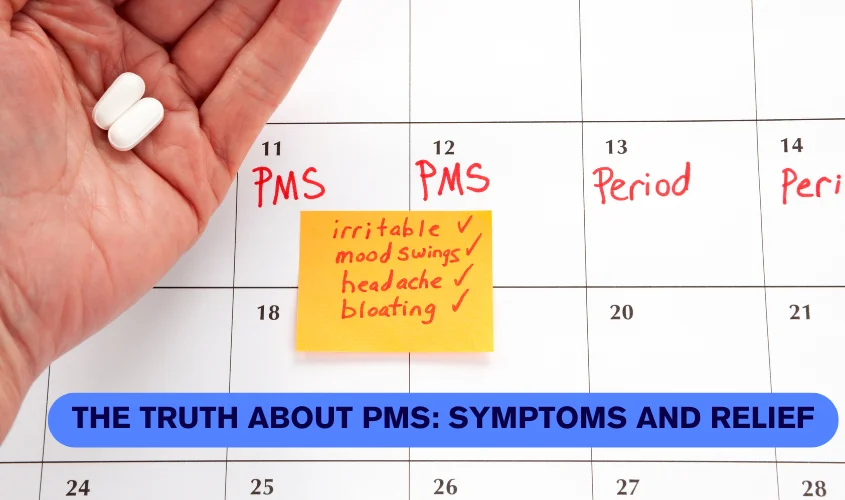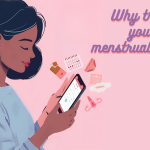Understanding Premenstrual Syndrome (PMS)
Premenstrual syndrome (PMS) is common among those with a menstrual cycle. It involves a range of physical and emotional symptoms. These symptoms usually occur in the luteal phase of the menstrual cycle, about a week or two before menstruation begins. Understanding PMS is essential for effective management and improving quality of life.
Common Symptoms of PMS
PMS symptoms can vary widely. Common signs include:
- Emotional Changes: Many people experience mood swings, irritability, anxiety, and sadness. These symptoms can interfere with daily activities.
- Physical Symptoms: Common physical symptoms include bloating, breast tenderness, headaches, and fatigue. These can contribute to discomfort.
- Appetite Changes: Cravings for certain foods, particularly sweets or carbohydrates, are frequent. This may lead to overeating.
- Sleep Disturbances: Insomnia or excessive sleepiness can occur, complicating the management of PMS.
- Difficulty Concentrating: Some individuals report trouble focusing, affecting work or studies.
The Science Behind PMS
Hormonal fluctuations significantly influence PMS. A drop in estrogen and progesterone levels occurs just before menstruation, leading to physical and emotional changes. Research shows that some individuals may be more sensitive to these hormonal changes, causing more pronounced symptoms.
Neurotransmitters like serotonin also play a key role in PMS. Low serotonin levels have been linked to mood changes, exacerbating emotional symptoms. This relationship highlights the need for effective stress management as part of PMS care.
Lifestyle factors, such as diet, exercise, and sleep, also impact PMS severity. A holistic health approach can be beneficial in reducing symptoms.
How PMS Differs from Other Menstrual Disorders
It is essential to distinguish PMS from other menstrual disorders, such as:
- Premenstrual Dysphoric Disorder (PMDD): PMDD is a severe form of PMS affecting a smaller percentage of individuals. It causes debilitating symptoms.
- Endometriosis: This condition involves the growth of uterine tissue outside the uterus. It leads to severe pain and irregular bleeding, requiring different treatment approaches.
- Menstrual Irregularities: Irregular periods can result from various factors, including hormonal imbalances and stress. Recognizing these differences is crucial for effective management.
Managing PMS: Effective Relief Strategies
Fortunately, several strategies can help alleviate PMS symptoms:
Dietary Changes
Diet plays a vital role in managing PMS. Here are some dietary recommendations:
- Increase Fruits and Vegetables: A diet rich in fruits and vegetables provides essential nutrients. Foods high in magnesium, such as leafy greens and nuts, can help reduce bloating.
- Stay Hydrated: Drinking plenty of water reduces bloating and improves overall well-being. Herbal teas can also be soothing during this time.
- Avoid Caffeine and Alcohol: Limiting caffeine and alcohol can help reduce anxiety and irritability. Opt for decaffeinated beverages or calming herbal teas instead.
- Healthy Snacks: Choose healthy snacks like nuts, yogurt, or whole grains to curb cravings and maintain energy.
- Balanced Meals: Focus on balanced meals with protein, healthy fats, and complex carbohydrates to stabilize blood sugar levels.
Regular Exercise
Engaging in regular physical activity offers numerous benefits for those with PMS. Exercise releases endorphins, which naturally lift mood. Consider the following:
- Aerobic Exercise: Activities like walking, running, or cycling can significantly reduce PMS symptoms by boosting mood.
- Strength Training: Incorporating strength training into your routine improves muscle tone and overall fitness, contributing to a positive body image.
- Yoga and Stretching: These practices alleviate tension and promote relaxation, reducing stress levels. Certain yoga poses can also relieve menstrual cramps.
Stress Management
Stress can exacerbate PMS symptoms, making stress management techniques essential. Some effective strategies include:
- Mindfulness and Meditation: Practicing mindfulness and meditation reduces stress and improves emotional well-being. These techniques focus on being present and aware.
- Deep-Breathing Exercises: Simple deep-breathing techniques can calm the nervous system. Try inhaling deeply through the nose and exhaling slowly through the mouth.
- Quality Sleep: Prioritize sleep hygiene to manage stress and improve health. Aim for 7-9 hours of quality sleep and establish a relaxing bedtime routine.
Medications
For moderate to severe PMS, over-the-counter medications may help. Consider the following options:
- NSAIDs: Nonsteroidal anti-inflammatory drugs, such as ibuprofen, relieve physical symptoms like cramps and headaches. They work best when taken at the first sign of symptoms.
- Hormonal Treatments: Birth control pills or hormonal therapy may regulate hormone levels and alleviate PMS symptoms.
- Antidepressants: In some cases, antidepressants help manage severe emotional symptoms associated with PMS. Selective serotonin reuptake inhibitors (SSRIs) can be effective.
When to Seek Medical Help
While PMS is common, recognize when symptoms may require professional attention. If symptoms significantly interfere with daily life, work, or relationships, consult a healthcare provider. Conditions like PMDD or endometriosis may require specialized treatment. Additionally, if you notice significant changes in your menstrual cycle or if your symptoms worsen, seeking medical advice is crucial.
Conclusion
In conclusion, understanding PMS and its symptoms is crucial for effective management. By adopting dietary changes, engaging in regular exercise, managing stress, and considering medication options, individuals can reduce the impact of PMS on their lives. Everyone experiences PMS differently, and finding the right combination of strategies may take time.
For additional support and resources, consider downloading the Selin app to track your menstrual cycle and symptoms effectively. This app can provide insights into your cycle and help identify patterns useful in managing PMS.
For more information on period cramps, check out our article on Understanding Period Cramps: Causes, Symptoms, and Relief Strategies.
Download the Selin App
Stay informed about your reproductive health and track your menstrual cycle with the Selin app. Download it now:
Period Calendar Selin for iOS or Period Calendar Selin for Android.












